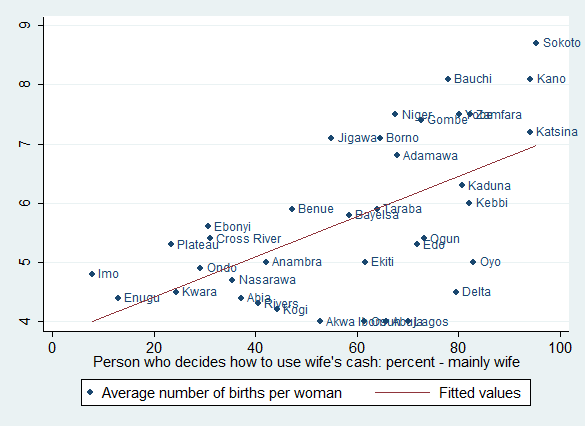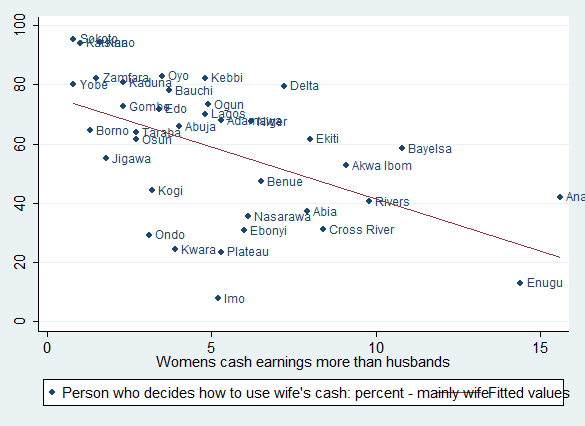Just a little background. One of the arguments for how to reduce fertility rates is female empowerment in households. The idea is that some wives may not necessarily want lots of kids but have no power financially to take control of the situation. In essence they are not economically independent enough to withstand pressures from husbands or other family members. Empowering women, by somehow raising their earnings relative to husbands or by increasing the assets to their name, should give them more authority to take charge of their fertility. This should in theory reduce the number of kids they choose to have.
So what do the stats in Nigeria say?
The first graph uses data on the percent of households where the wife decides what to do with her earnings. The idea is that women are more empowered in households where they decide what to do with their earnings as opposed to households where someone else does.
The theory suggests that more empowered women have fewer kids however the stats say the opposite. Well at least as far as Nigeria is concerned. The fertility rates seem to be higher in states where women are more empowered in the household and lower in state where women are not as empowered.
As a friend on twitter pointed out, the unexpected correlation may be driven by the actual earnings of wives. If wives earn very little relative to husbands in some states then there will probably be less incentive for husbands to try to capture their wives earnings and dominate household decision making. The only data I have on relative earnings within the household doesn’t support that claim though. The second graphs plots percent of households where the wife decides what to do with her earnings against the percent of households where wives earn more than their husbands. The graph suggests that states with a higher percent of relatively higher earning wives have households with wives who do not make decisions on what to do with their earnings. States with relatively higher earning wives less empowered?
It seems that at least as far as Nigeria is concerned the fertility rates are not driven by low female empowerment in the household. The opposite of what I expected. I should point out that it does not mean that female empowerment is a bad thing. It IS a good thing. It just means that trying to reduce fertility rates by empowering women in the household may not lead to lower fertility rates.


2 thoughts on “Weird fertility and female empowerment stats”